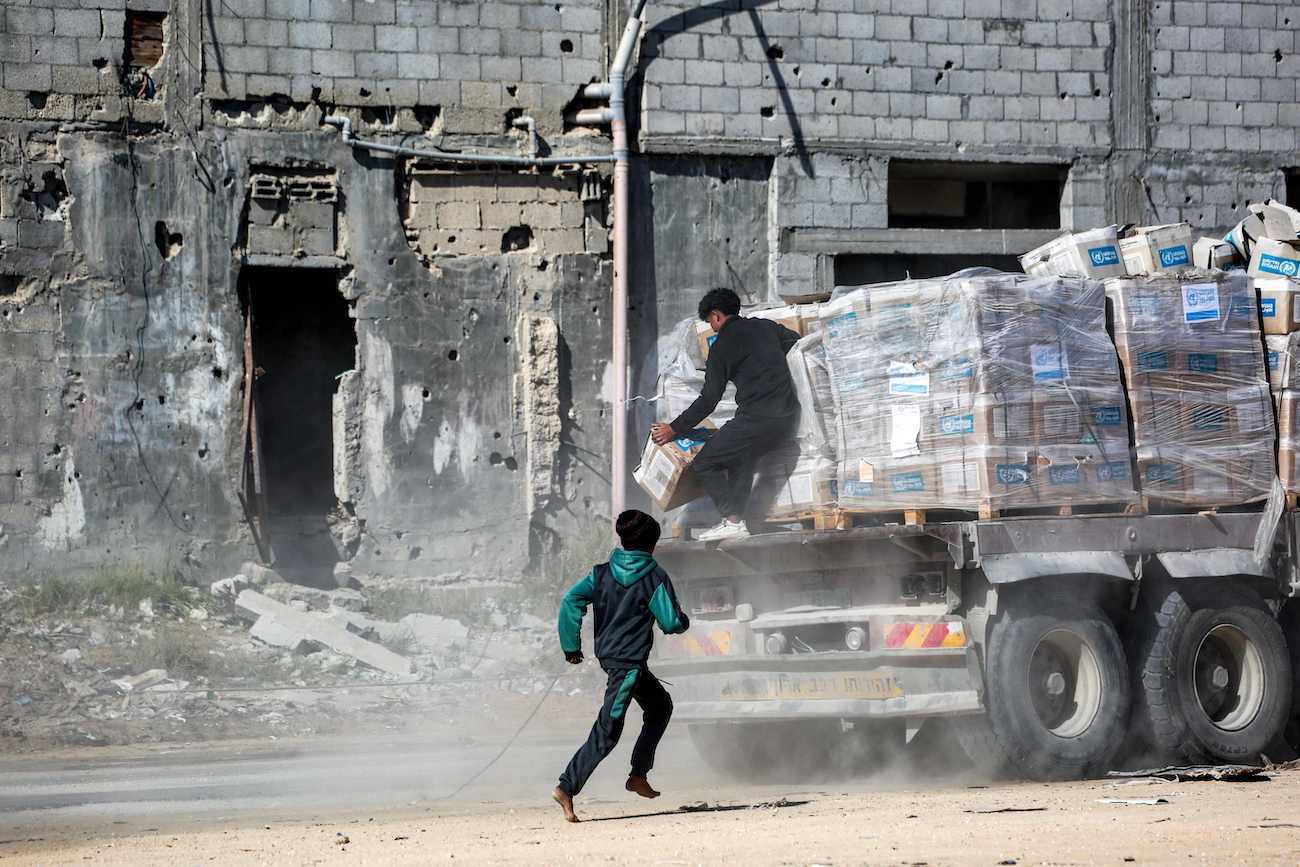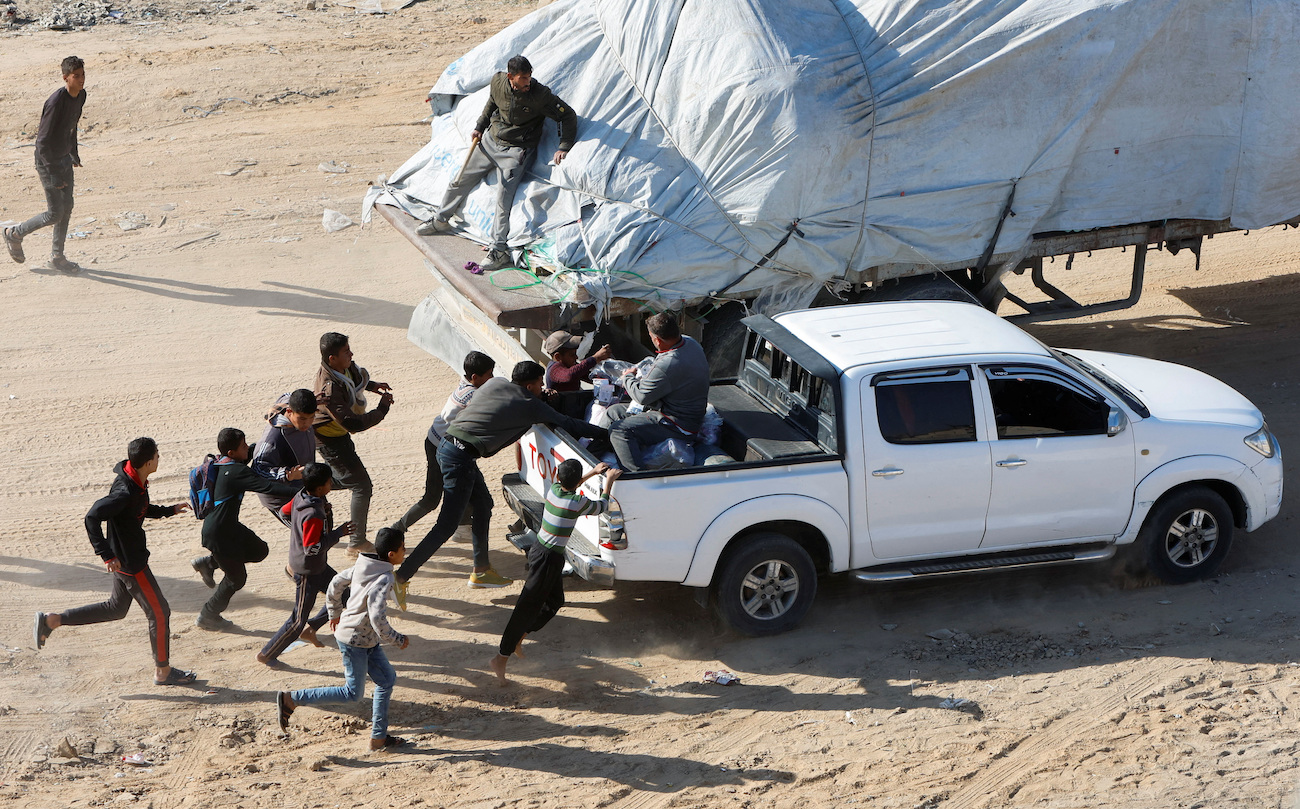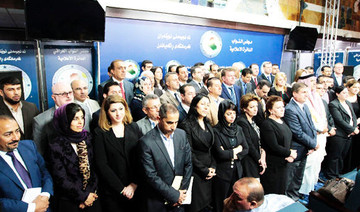GENEVA: A UN rights expert on Monday said there were “reasonable grounds” to determine that Israel has committed several acts of “genocide” in its war in Gaza, also evoking “ethnic cleansing.”
Francesca Albanese, the UN special rapporteur on the rights situation in the Palestinian territories, said there were clear indications that Israel had violated three of the five acts listed under the UN Genocide Convention.
“The overwhelming nature and scale of Israel’s assault on Gaza and the destructive conditions of life it has inflicted reveal an intent to physically destroy Palestinians as a group,” she said in a report, which was immediately rejected by Israel as an “obscene inversion of reality.”
Albanese, an independent expert appointed by the UN Human Rights Council but who does not speak on behalf of the United Nations, said she had found “reasonable grounds to believe that the threshold indicating the commission of... acts of genocide against Palestinians in Gaza has been met.”
The report, entitled “Anatomy of a Genocide,” listed those acts as: “killing members of the group; causing serious bodily or mental harm to the group’s members; and deliberately inflicting on the group conditions of life calculated to bring about its physical destruction in whole or in part.”
Israel’s diplomatic mission in Geneva said the country “utterly rejects the report,” describing it as “simply an extension of a campaign seeking to undermine the very establishment of the Jewish State.”
“Israel’s war is against Hamas, not against Palestinian civilians,” it said in a statement, slamming Albanese’s “outrageous accusations.”
Israel has long been harshly critical of Albanese and her mandate.
Last month it slapped a visa ban on her after she made comments denying that Hamas’s October 7 attack, which sparked the war in Gaza, was anti-Semitic.
That attack resulted in about 1,160 deaths in Israel, mostly civilians, according to an AFP tally based on official Israeli figures.
Militants also seized about 250 hostages, of whom Israel believes around 130 remain in Gaza, including 33 presumed dead.
Israel’s relentless bombardment and ground offensive in Gaza has since killed more than 32,300 people, mainly women and children, according to the health ministry in the Hamas-run Palestinian territory.
South Africa has already filed a complaint against Israel before the International Court of Justice, alleging its assault on Gaza amounts to a violation of the genocide convention.
The court has yet to rule on the underlying issue, but earlier this year ordered Israel to do everything it could to prevent genocidal acts during its campaign and also to allow in humanitarian aid.
In Albanese’s report, which she is due to present to the Human Rights Council on Tuesday, she maintained that Israel’s “genocidal acts” followed “statements of genocidal intent.”
Statements by some senior Israeli officials spelling out an intent to forcibly displace Palestinians and replace them with Israeli settlers, she said, indicated that “evacuation orders and safe zones have been used as genocidal tools to achieve ethnic cleansing.”
The report also found that Israel was treating all Palestinians and their infrastructure “as ‘terrorist’ or ‘terrorist-supporting’, thus transforming everything and everyone into either a target or collateral damage.”
“In this way, no Palestinian in Gaza is safe by definition,” it said.
“This has had devastating, intentional effects, costing the lives of tens of thousands of Palestinians.”
The report also stressed that Israel’s mistreatment of the Palestinians had not begun on October 7.
“Israel’s genocide on the Palestinians in Gaza is an escalatory stage of a longstanding settler colonial process of erasure,” it said.


































